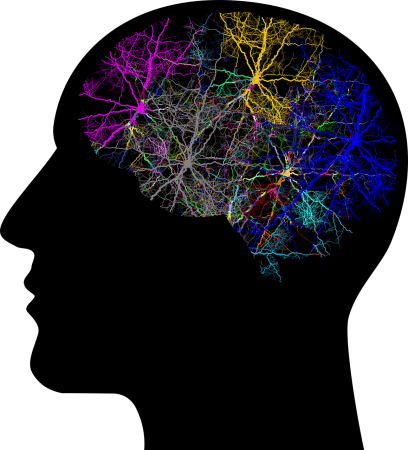7 Reasons to Try Intermittent Fasting and Intermittent Eating
So many diets come and go but intermittent fasting I think is here to stay and for good reason!
Why?
Look at us as a society? We eat constantly, and we are not eating nutrient dense foods.
Look at our ancestors? They were fasting and reaping the benefits and didn’t have to call it fasting!
If I look back at my terrible eating habits when I was younger, I guess you could say I was intermittent Eating for years back then. But “skipping” breakfast doesn’t really qualify. I would skip breakfast then eat an unhealthy lunch (sometimes only French fries, or a large cookie or a diet soda, apple, and a diet yogurt), then eat again late afternoon and then dinner. This doesn’t count as intermittent eating because the diet was garbage, my blood sugar was so low I was lightheaded constantly, and I had headaches and fatigue every single day!
If you want to reap the benefits of skipping a meal like our ancestors did and primitive cultures still do, you need to be eating a whole foods diet! I cannot stress this enough!
Otherwise, once you have your diet under control, the rewards from intermittent fasting are vast.
Before you even consider this approach, take a hard look at your diet, where you get your food from, and the ingredients in your foods. Get rid of packaged, processed foods, the colorings, dyes, preservatives, rancid omega 6 oils, fake foods, junk food, sugar, artificial sugar, wheat products and so forth. Just doing this could take you a year depending on how many swaps you need to make.
There are so many diets that come and go. If you have been a client of mine or know me, you know I am not a fan of a lot of different diets out there. That is not to say that diets such as ketogenic, low FODMAP, Specific Carbohydrate diet and others do not have their therapeutic benefits short term, but to live on these restrictive diets I feel goes back to symptom management instead of addressing the root cause.
My philosophy is to keep it simple. Take out the bad, keep in the whole foods, allow 10-20% of your diet for treats on occasion. This means just eat whole foods! The more whole foods you eat, the less allergens you encounter, less labels you have to read, the less sugar and processed foods in the diet.
But the one type of “diet” that I do support is Intermittent Fasting/Eating. This isn’t a diet per se but a timing of your food. If you look at primitive cultures and our ancestors, we did not eat three meals and two snacks a day. We didn’t eat all day long. Every time you put food into your mouth, your body releases some insulin. How much depends on what you eat. (the more sugar or processed carbs in that bite of food, the more insulin released, the larger the meal, the more insulin released). Insulin is always released when we eat so it is good to give the body “fasting breaks”. People who graze or who snack all day are triggering insulin production too often. Some days I know I’m guilty of this and I used to be a grazer all day long.
If you think about your ancestors or look at more primitive cultures, they are not eating all day long. We don’t need this constant fuel when we sit behind a computer all day long.
If you are eating a crap food diet, you need to get this in order first, then you can add in intermittent eating or fasting to reap the benefits. If you are like most of the people in the U.S., your blood sugar is not stable. Get it balanced first by eating whole foods, balanced meals with protein, fats and whole food carbs and then start making tweaks! If you are not sure how to go about doing this, give me a call.
Intermittent Fasting (IF)
Intermittent fasting and Intermittent Eating are a bit different but know that most people will use these terms interchangeably.
Intermittent Fasting means that every other day or one to two days per week you restrict your normal caloric intake. This works well with a high fat diet. Your caloric intake is quite low on these days, thus the reason to only do one or two days per week.
I only recommend doing this for a 12- week period and may be good if you hit a plateau in your weight loss goals. For instance, you skip breakfast, eat only lunch and dinner but also keep calories restricted. Most people will say around 500 calories. I say it depends on the individual. But bottom line, these are low calorie days, hence the reason for only doing these one to two times per week.
I prefer intermittent eating which is a bit different because it does not restrict the calories. What I have found, is that most people still end up eating less calories in their day doing intermittent eating. You end up eating less because of the time restraints, but also because you just are not as hungry because of blood sugar stabilization.
Intermittent Eating
Most people will call this intermittent fasting also. This is also called Time Restricted Feeding
This is my favorite ways to jump start weight loss or if you hit a plateau and I think one of the easier ones to follow. This means you decrease the window of time that you are eating. It is usually an 8-16 hour fasting period that helps the body to shift to burning fat. Most people can easily go the 8 hours fasting (and really all of us should be fasting overnight at least 8 but ideally 12). Start out with a 12 hour fast. If you stop eating at 7:30 at night, you don’t eat again until 7:30 a.m. Gradually increase the time that you go without eating. For most, what works is eating their last meal around 6:30-8:30 the night before and then not eating again until lunch time. This would roughly be around 16 hours of fasting time.
However, for some this can be too long. If you feel shaky, fatigued, very hungry, light headed with a headache (low blood sugar symptoms) you may not be able to go this long and best to work up to that 15-16-hour window. You may need to gradually work up to a 16 hour or longer fast. If you have trouble going longer than a 12 hour fast, it is probably an indicator that you still need to work on the diet and on balancing blood sugar.
When you do fast, what ends up happening is that you only eat from say 12:30 to 7:30 p.m. and most find it difficult to overeat in that window of time.
Don’t intermittent eat every day but start instead with one to three days per week. For weight management after the weight loss you may want to keep one day per week or every other week of intermittent eating in as part of your normal routine.
Benefits to Intermittent Eating and Fasting Include:
- Avoids late night snacking and thus helps to balance insulin/blood sugar levels
- Caloric restriction can promote longevity and slows down the aging process
- Intermittent eating and fasting is great for brain health! It can improve memory, enhance brain function after a brain injury, improve mental health and mood and slow down cognitive decline associated with aging.
- Regulates hormones. Regulates the feeling of hunger and fullness, regulates fat metabolism
- Can improve blood sugar and cholesterol levels.
- Reduces inflammation (more so because you eat less and take out the snacking on junk food).
- Helps to boost weight loss (especially if you hit a plateau) or helps to maintain weight
- Helps to clean out cellular waste This is called autophagy
The Data
A 2018 study from the Univeristy of Alabama on a small group of obese men with pre-diabetes who did an IF of eating only from 7 a.m. to 3 p.m or spread out over a 12 hour period found that both groups maintained their weight BUT after 5 weeks the fasting group had much lower insulin levels and improved insulin sensitity and lower blood pressure. This group also reported a decrease in appetite.
A study done on rats saw their average life span increase by 80% when they were fed alternate days. A similar rat study showed that the alternate day fasting improved running endurance. In human studies, young men who fasted for 16 hours lost fat while maintaining muscle mass while resistance training for two months.
Animal studies have also shown that fasting enhances spatial memory, associative memory and working memory. This was seen in alternate day fasting and with caloric restriction fasting. Other studies done on older adults where they were givien a short regimen of caloric restricition improved verbal memory. In a different study on overweight adults with mild cognitive impairment, one year of IF led to improvement in verbal memory, executive function, and global cognition. (they don’t state in this article the specifics to the year long IF).
What to Eat
It is important that if you are not yet eating a whole foods diet then you need to work on this first. It’s not going to help if you skip breakfast but eat fast food at lunch and a frozen meal for dinner. If you are still eating take- out food or skipping meals because you don’t have time to eat or make anything and then you end up over eating or eating a lot of processed carbs, then you are not ready to try fasting.
A Fasting Day Could Look Like This
- Start your day with 16 ounces of filtered water. Continue to hydrate as needed. This can be in the form of some herbal tea and a cup or two of black organic coffee.
- Eat your first meal of the day around 12:30 p.m. Eat a balanced regular meal (no need to consume extra calories) such as a salad with dark leafy greens, veggies, protein source, home made salad dressing and side of mixed berries or side of home- made soup. (if you are making this a “keto” day-see my notes below- then watch the carb grams in the fruit and soup or opt for a larger salad with more protein and fats) or have with it handful of nuts and seeds.
- If hungry, eat a snack around 3-4:30 p.m. such as a handful of nuts, or hummus and veggies or nut and seed crackers with wedge of grass fed cheese (if tolerated). (if this is a keto day for you then omit the hummus and crackers)
- Eat dinner around 6-7:00 ish p.m. Another balanced meal (can have more whole food carbs with dinner) such as salmon with baked potato (white or sweet), and roasted Brussel sprouts. (if a keto day, then eat a smaller portion of the carbs or swap them out for more non-starchy veggies)
- Stop eating by around 7-7:30 pm. Your fasting time would have been from say 7:00 p.m. until 12:30 p.m. the next day.
- It doesn’t have to be breakfast that you skip-if you prefer you can skip dinner.
Most people will skip the breakfast as this is the most hectic part of the day for many of you. But breakfast has so many plusses and benefits that I like to add in intermittent fasting only a couple days per week. Others may say to do intermittent fasting daily. I personally like a cycle approach. Listen to your body and see what feels best for you.
Studies show that you can reap all the benefits with this type of fasting-there is no need to do a 24 hour fast which is difficult for most people to do.
Reap Even More Benefits
Combine intermittent eating with a ketogenic diet (very low carb). If you have read my past posts you have heard me say that I don’t like the Keto diet (long term) and I still believe this. However, I do feel that adding in low carb days, keto days of 40 carb grams or less can be beneficial. You will reap more blood sugar benefits along with increased muscle mass and reduced inflammation if you use your fasting days as low carb days as well. Again, I don’t agree with the everyday philosophy because it takes too many beneficial foods out of the diet.
What You Can Have During A Fast
You can drink water, tea, or coffee (black, no not bullet proof coffee). Yup, that’s about it. It is a fast after all.
Terms You May Hear For Fasting
5:2: You may hear some say they are on a 5:2 diet. This is fasting 2 days per week. This may also include the restricted calorie consumption on those 2 days
One Meal a Day: Some people will eat a very large meal once per day. I don’t typically recommend this but rather break it down into 2 meals for satiety. This may work for a very hectic schedule but it is a lot of whole foods and a lot of chewing in one meal. Not my preference but it does work for some.
16:8 also called Time Restricted Feeding : Another common IF method similar to the 5:2 method but this means they are fasting for 16 hours and have an 8 hour widnow of eating time. Some do this daily but as I said you can do this one, two, three times per week…..do what works for you.
The Down Side to Fasting
Some people (especially women) can experience negative effects from fasting such as missed periods, binge eating (although many studies suggest that this is not an issue), early menopause onset and fatigue (this may fade after first week). Women’s hormones are much more sensitive to what we eat and how much and when. Hence, the reason to not do intermittent eating every day nor go low carb every day. I think (based on my own personal experience) that one to two days per week is all you need to do to reap the benefits. Again, as stated above, this is also why it is critical to get a whole foods diet down first before you add in fasting. I cannot stress this enough! If after trying IF for a few weeks, you notice fatigue, dry skin, fatigued after working out, heart palpitations, slower digestion, then fasting is just not for you at this point in your life.
Avoid IF if you are pregnant, have an eating disorder, don’t sleep well or are still eating the standard American diet.
What About Exercise?
If you are exercising in the fasted state, keep your exercise routine on these days to no longer than 30 minutes. Intense and long exercise in a fasted state is not recommended and studies show that your workouts will suffer- however if you are jogging on a treadmill, studies show your exercise will not suffer. Don’t do HIIT, weight training, intense cross fit workouts in a fasted state. This can put unnecessary stress on the body, and a surge of cortisol, which can cause stubborn weight gain and inflammation. (note that working out and fasting tends to be a very controversial subject currently. You have to decide what are your goals-building strength, losing weight, increasing endurance, maintenance? Then you can decide if fasting before a workout is right for you. Listen to your body. I know people who love working out in a fasted state and others who get very lightheaded and dizzy-whatever the research say, listen to your body!
Who Should Avoid Intermittent Fasting
Some people should not fast at all. This includes diabtetics (if type 2 work on a whole foods diet instead), youth/children, women who are pregnant or breastfeeding. The elderly if it makes them light headed and dizzy and thus as greater risk for falls. Listen to your body, disucss with your doctor your own health issues to see if IF is right for you.
Bottom Line: Adding in a day or two per week of intermittent eating can be beneficial for your health. Make these low carb days to reap even more benefits. Don’t get obsessed with fasting and going low carb all the time as you don’t need to do it every day and if you do, it could back fire and make you feel worse. The key here is to listen to your body!
Sources
http://nutritionwonderland.com/2010/05/understanding-our-bodies-insulin/
https://www.ncbi.nlm.nih.gov/pmc/articles/PMC3680567/#!po=21.4286
https://www.ncbi.nlm.nih.gov/pmc/articles/PMC5371748/#!po=20.2128
https://jissn.biomedcentral.com/articles/10.1186/1550-2783-11-S1-P25
https://psychcentral.com/lib/could-skipping-breakfast-relieve-depression/
https://www.ncbi.nlm.nih.gov/pmc/articles/PMC4790398/
https://www.precisionnutrition.com/intermittent-fasting-women
https://www.sciencedirect.com/science/article/pii/s1550413118302535










Leave A Comment
You must be logged in to post a comment.